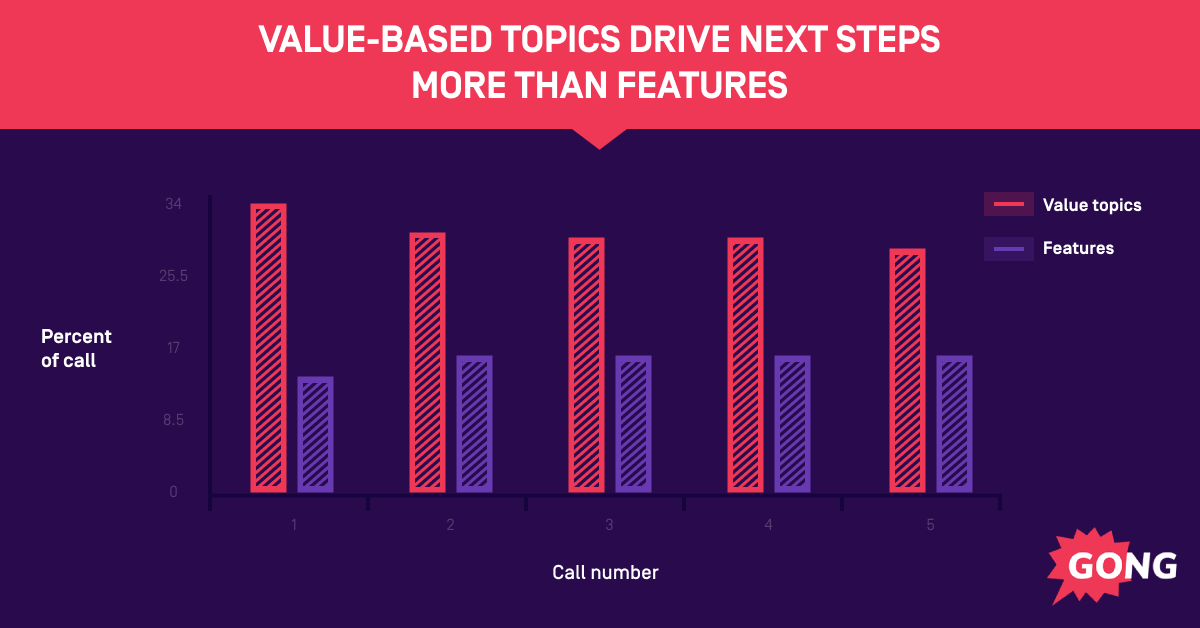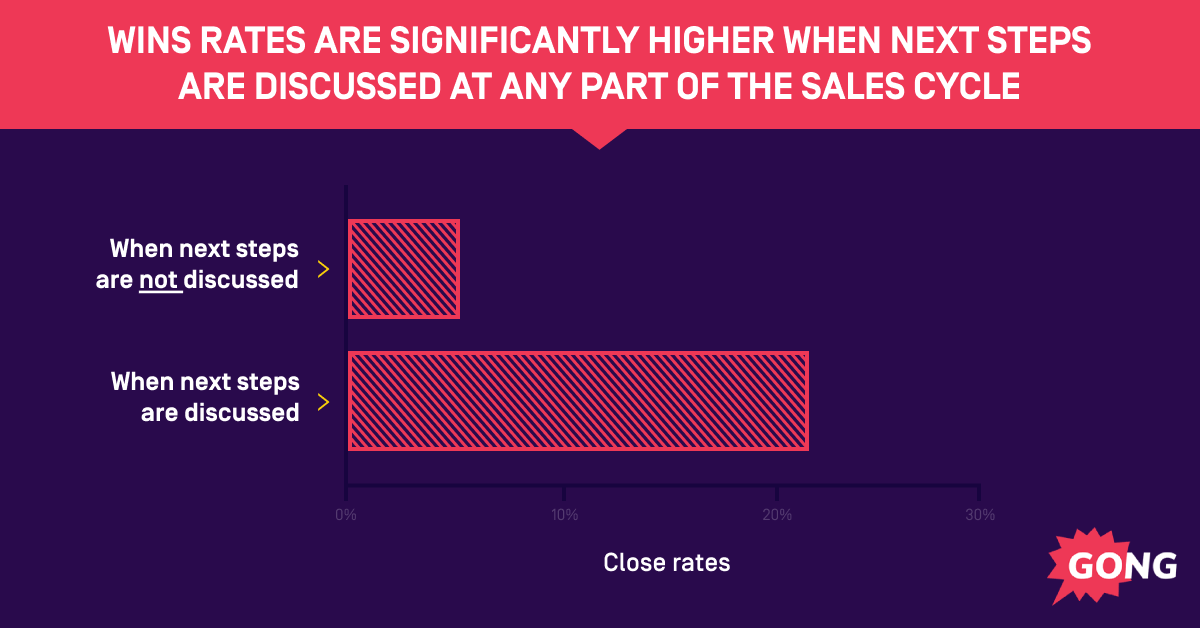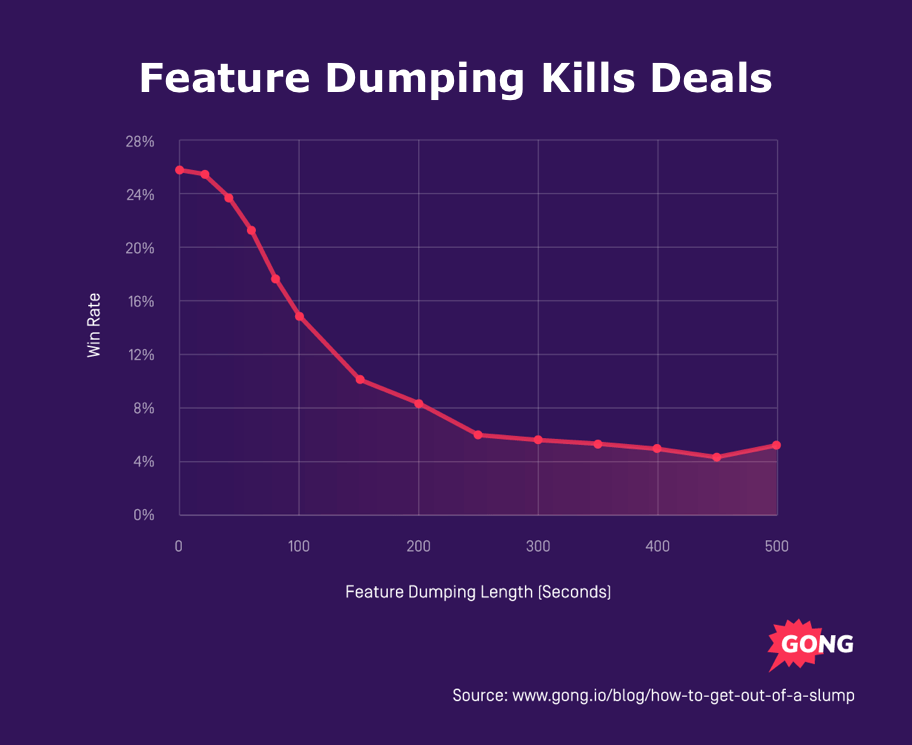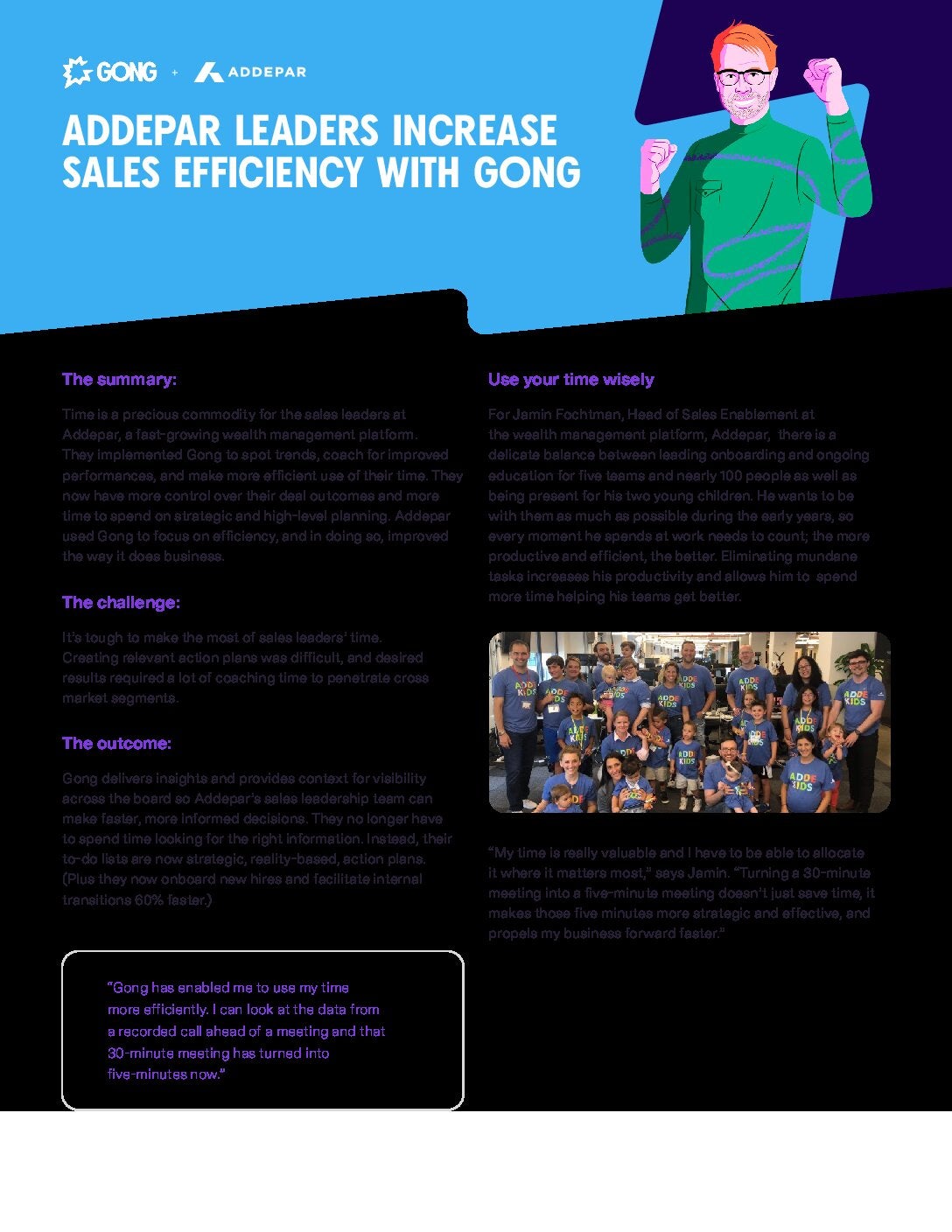Driving next steps isn’t enough: discover what really moves deals forward
This article is part of the Gong Labs series, where I publish findings from our data research team. We analyze sales conversations and deals using AI, then share the results to help you win more deals. Subscribe here to read upcoming research.
“Devin, I need to punt this. Let’s revisit in Q4.”
Nooooooo!
My jaw clenched.
I had poured time and energy into this account for five months.
And this was NOT what I wanted to hear from the biggest deal in my pipeline.
Nor was I expecting it — at all.
I’d just finished a tour of demos across every business unit.
There was interest. There was excitement. There was momentum.
Or at least I thought there was.
But in two seconds my $83k deal flatlined, going from “Most likely” to thin air.
So what went wrong?
The answer isn’t simple.
Mostly because it was about momentum, and that’s not something you can “see.”
As a result, sales teams trip into the same pitfalls over and over again, losing winnable deals along the way.
That’s why our Gong Labs data team analyzed 8,382 deals to learn what REALLY drives deals forward.
And the answer will completely change your buyer conversations.
“Driving next steps” isn’t enough
You already know that discussing next steps is good for deals.
But most sellers think that locking in the next meeting is enough to keep deals moving forward.
It isn’t.
Yes, it’s incredibly important to the overall state of your deal, but there’s another factor that truly gets buyers to sprint like Sha’carri Richardson through the sales cycle… something that happens before next steps are set: discussing the right topics in sales calls.
That has a massive impact on whether buyers continue down the buying process by setting up next steps:
Sales reps typically focus on two types of topics: value-based topics and features-based topics.
Value topics are things like discovery, business impact, and use cases.
Product features are exactly that: all about your product and how it works.
The data shows that focusing on value-based topics is far more productive.
Put another way, when sellers focus on features, they are significantly less likely to earn a follow-up call.
And that matters because next steps are everything:
Next steps are a huge part of deal momentum. Without them, you have no deal.
Value-based discussions are the fuel that helps you set next steps and maintain deal momentum. If you don’t engage in these discussions, you’ll have a much harder time setting crucial next steps.
Sidebar: As a manager, you may think you’re coaching reps on booking next steps, but you’re actually coaching on topics that will lead to next steps. Same thing for you, reps: Don’t focus solely on next steps. Focus on the topics and conversations that help you book them.
(Pssst – want to “wow” buyers into moving forward? These 10 value-selling prompts will help you uncover true business pain and drive deals towards closed-won.)
If you’re not problem solving, you’re not selling
When you sell a product by leading with features, your buyer has to figure out how those features solve problems. They have to connect your product to their goals.
In other words, you’re asking them to sell the product to themselves.
But when you focus on value-based topics, you do the problem solving together — causing buyers to rush you through the sales cycle.
That’s why value-based topics are what really resonates with buyers. It’s why they say yes to setting next steps: they want to hear more and keep the convo going. Instead of dodging your emails and rescheduling meetings, they sprint towards signature.
They’re running toward their desired state; one in which they’re more productive, can boost team performance, and help their company grow.
These outcomes are significantly more motivating than “buying another tool with shiny features.”
Because people don’t buy to spend, they buy to solve.
“People don’t buy to spend, they buy to solve.”
Problem solving in sales means understanding your buyer’s most pressing worries and needs, and showing them exactly how your product addresses their problems.
A solution is what makes them believe in your product because it brings them value.
It’s what makes them reach for their (corporate) credit card.
You know what doesn’t get them there?
Going on and on about that new thing your dev team created. That’s called feature dumping.
Avoid feature-dumping at all costs
It’s tempting to focus on your product.
I mean, you know it’ll help your prospects. And it’s so easy to fall into that “If they see it, they’ll love it” mindset.
But that isn’t true.
Because they won’t really understand how those features address their biggest challenges.
And when you spend too much time feature-dumping, your win rate plummets:
Stick to value-based conversations and you’ll kick your sales process into 5th gear by engaging your buyer and getting them to set next steps. That’s the key to maintaining (and boosting) deal momentum.
Read this before your next call
Solve your buyers’ problems and they’ll ask you, “Where do I sign?”
But before you can get there, you need to know how to sell value.
And that means knowing how to discuss value-focused topics.
Here’s your head start: There are 10 Value-selling prompts that increase deal momentum.
Using these conversation-starters is like hitting fast-forward on your deal.
You’ll uncover true pain, deliver value, and push deals forward (so they never go dark).
Download your plug-n-play sentences here. So easy, right?





